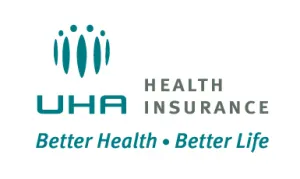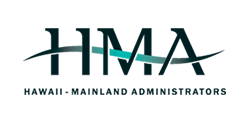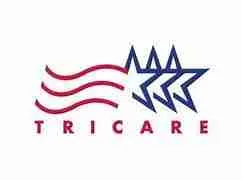It is a difficult time after an injury and is very frustrating trying to navigate your medical bills especially after a major trauma. While we are often able to file your bills with the insurance company in a timely manner, there is a great deal of variation in when our claims are processed. As a result, you may end up waiting longer than expected to receive a bill from us. Please be patient with the process. We will maintain close communication with your insurance company. If you have any issues, please do not hesitate to reach out to our billing department.

Healthcare Plans Accepted by Dr. Morton
Dr. Morton accepts most insurance plans that are available in Hawaii. Payments for medical plans can often be confusing. We have excellent billing staff that can answer all of your questions.
Call Ahead to Determine Your Insurance Plan Coverage
Please call ahead to confirm insurance coverage. If you do not have a PPO, you may require seeing your primary care physician first and obtain a referral. Some healthcare plans require you to obtain pre-authorization prior to your visit.
For patients without healthcare plans, we do have cash plans available as well as CareCredit. If you do not plan to pay with insurance, please call ahead to determine how much you will be responsible prior to your visit. We can help determine how much your visit will cost.
Patients are responsible for payment of their co-payments and fees that are not covered by insurance. We accept personal checks, Visa, and Mastercard.

Hawaii Insurance Plans that Do Not Typically Require PCP referral or Prior Authorization
HMSA PPO
HMSA Medicare Advantage
Ohana Medicare
Medicare
HMAA
UHA
MDX
Hawaii Insurance Plans Require Prior Authorization from your PCP
Veteran’s Affairs (VA)
Tricare Prime
Hawaii Insurance Plans Require PCP Referral
HMSA HMO
HMSA Quest
Alohacare
Ohana-Medicaid
UHC-Medicaid
HMA HMO
I didn’t have Surgery, but I Received a Bill for Surgery! What’s Going on?
Insurance billing can be very complicated. Sometimes when billing for treatment of an injury, a bill for non-operative care of a broken bone will flag the treatment as “surgery”. This type of treatment falls under “fracture care”. With fracture care, the bill covers the first 90 days of your treatment and covers many of the costs including your initial casting and subsequent visits in the first 90 days.
Similarly, sometimes an injection is billed as a surgery, even if it is administered in a clinic visit.
If you have any questions about your bill, don’t hesitate to reach out to our billers – call (808)439-6201. Please also visit the surprise medical bills disclaimer.
Medicaid, Quest, United Healthcare-Community – No Problem.
We accept most insurances. For managed care plans and Medicaid, you need a referral from your PCP. Once you have this referral, we can schedule an appointment. If you are not set up with a PCP, we are happy to help send you in the right direction.
We do not accept Kaiser Permanente. Please review the private pay and out-of-network sections.
Private-Pay or Cash-Only Patients
Call ahead if you do not have insurance or do not plan to use an insurance plan at your visit. We will discuss the costs of your visit up-front. We will maintain transparency in our billing. Please do not hesitate to discuss costs. If you require surgical intervention – there is variation in costs between hospitals. We may help you estimate the costs of any surgery or hospitalization you may have with us. In complex surgical cases such as revision hips or knees, there may be significant variation in your private-pay costs.
The high cost of surgical care in the United States can be attributed to several factors, including bureaucracy at the insurance and hospital levels, cost shifting, and the lack of free market principles. As a result, more and more patients are finding themselves paying more and more out-of-pocket for surgical care, which can be cost-prohibitive.
To address this issue, it is necessary to take a different approach to pricing surgical services. Our solution is to adopt transparent and direct pricing, which can help to make the cost of care more predictable and affordable for patients. By eliminating the bureaucracy and cost shifting that contribute to high prices, patients can receive high quality care at a more reasonable cost.
Price transparency refers to the practice of openly and clearly disclosing the prices of healthcare services and procedures. This includes providing patients with accurate and upfront information about the costs of their care, as well as any potential out-of-pocket expenses they may be responsible for.
One of the main benefits of price transparency is that it allows patients to make more informed decisions about their healthcare. With accurate and upfront pricing information, patients can compare the costs of different providers and procedures and choose the most affordable and appropriate option for their needs.
Price transparency can also help reduce healthcare costs by promoting competition among providers. When prices are openly disclosed, providers may be more motivated to offer competitive pricing to attract patients. This can lead to lower overall costs for patients and improved quality of care.
Overall, price transparency is essential to creating a more efficient and cost-effective healthcare system. By providing patients with accurate and upfront pricing information, we can empower them to make informed decisions about their care and help reduce the overall healthcare cost.
International Patients
Hawaii may be an appealing destination for medical tourism due to several factors, including its location, climate, and cultural attractions. Some specific benefits of coming to Hawaii for medical tourism may include the following:
- Access to high-quality care: Hawaii has several well-respected hospitals and medical professionals trained to provide high-quality care.
- Lower costs: Medical care in Hawaii may be more affordable than in other parts of the United States, which can benefit international patients.
- Cultural and linguistic considerations: Hawaii is a diverse state with a multicultural population, which may make it more comfortable for some international patients. Additionally, English is widely spoken in Hawaii, which can help to reduce language barriers.
- Climate and natural beauty: Hawaii has a tropical climate and is known for its beautiful beaches, mountains, and other natural attractions. This can make it a pleasant place to receive medical treatment.
- Cultural and recreational activities: Hawaii has a rich cultural heritage and offers a variety of recreational activities, such as hiking, surfing, and sightseeing, which can be enjoyable for patients and their families during their stay.
Overall, Hawaii may be an attractive destination for medical tourism due to its access to high-quality care, lower costs, and cultural and recreational attractions. We accept patients who are private pay and are able to offer significant discounts for our international patients.
High-Deductible Plans
Individuals with high-deductible insurance plans have insurance coverage with a higher-than-average deductible amount. This means they are responsible for paying a more significant portion of their medical expenses out-of-pocket before their insurance begins to cover the cost of care.
High-deductible insurance plans are often paired with a health savings account (HSA), which allows individuals to set aside money tax-free to pay for qualifying medical expenses. This can be a good option for individuals who are generally healthy and do not require frequent medical care, as they can save money on premiums while still having coverage for unexpected medical expenses.
However, individuals with high-deductible insurance plans may face challenges when paying for healthcare, as they may have to pay more out-of-pocket before their insurance coverage kicks in. This can be especially difficult for individuals who require expensive medical procedures, such as surgery.
To help manage the cost of care, it is crucial for individuals with high-deductible insurance plans to research and explore all of their options. This may include shopping around for the most affordable providers and procedures and taking advantage of any tax savings opportunities through a health savings account. By being informed and proactive, individuals with high-deductible insurance plans can make the best health and financial well-being decisions. Call us for a quote.
Out-of-Network Patients
Out-of-network patients are individuals who receive medical care from providers who are not in their insurance company’s network of contracted providers. This can occur when an individual seeks care from a provider who does not have a contract with their insurance company or receives care from a provider who is in their insurance company’s network but does not follow the correct billing procedures.
Out-of-network patients may face higher out-of-pocket costs for their medical care, as their insurance company may not cover the total cost of the procedure or may only cover a portion of the cost at a lower rate. Additionally, out-of-network providers may charge higher fees for their services, which can also increase the overall cost of care for patients.
To help manage the cost of care, out-of-network patients must be aware of their insurance coverage and any potential out-of-pocket costs they may be responsible for. By being informed and proactive, out-of-network patients can make the best health and financial well-being decisions.
Worker’s Compensation (Workman’s Comp), Third Party Liability, No-fault insurance, and Auto-Related Injuries
Dr. Morton accepts worker’s compensation, third-party liability, no-fault insurance, and auto-related patients. Please make sure you have all of your documentation and prior-authorization set up prior to your appointment. We cannot get started until after your claim has been filed.
You will need the following information:
- Nature of the injury
- Injury date
- Policy Number
- Employer name
- Worker’s Compensation Company
- Adjustor’s Name
- Phone for Adjustor
- Fax for Worker’s Compensation
- Also, please bring any other insurance you have.
If you would like to be seen for separate problems at the same time as your visit – you will need to be booked for two appointment spots. This is because worker’s compensation and third-party liability companies will only allow us to bill for the treatment of conditions that you have been pre-authorized. Please let the staff know when you set up the appointment before arriving at the office.
Frequently Asked Questions
(808)439-6201
Most likely. I accept most insurance plans including HMSA, HMAA, Medicare, Medicaid, MDX, UHA, and United. Call our office to confirm.
Absolutely! Call our office today at (808) 439-6201
We accept many health care plans. Please call before your appointment to make sure that your visit will be covered. Health care plans we accept include:
Aetna Health Plans, Cigna HealthCare, Deseret Mutual Benefit Administrators (DMBA), Healthcare Management Administrators (HMA), Hawaii Medical Assurance Association (HMAA), Blue Cross Blue Shield HMSA, HYGEIA Travel Health, MDX Hawaii, Medicare, The Queen’s Health Systems Health Care Plan, Tricare (Will require referral from PCP), University Health Alliance (UHA), United HealthCare.
Most likely. I accept most insurance plans including HMSA, HMAA, Medicare, Medicaid, MDX, UHA, and United. Call our office to confirm.
Absolutely! Call our office today at (808) 439-6201.
Dr. Morton’s practice locations are at the Physician Office Building1, Suite 808, Queen’s Medical Center, Honolulu, Hawaii 96813. He also operates at Queen’s Medical Center West, Queen’s Medical Center Honolulu, North Hawaii Community Hospital, Castle Medical Center and Kuakini Health System.
Dr. Morton is a hip and knee specialist who provides clinical and surgical services. His focuses are on joint replacements, complex reconstruction, robotic-assisted surgery, sports surgeries, and trauma care.





















